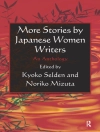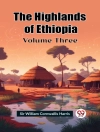‘The Return of the Native’ is the sixth book by legendary British author Thomas Hardy and is widely considered to be his masterpiece.
At the opening of the book, a strange and complicated plot is already well underway. We meet a tradesman, Diggory Venn, who is transporting Thomasin Yeobright home, after her prospective marriage to Damon Wildeve is delayed due to an error in the marriage certificate. Venn soon discovers that Wildeve himself intentionally caused the error and that the entire idea of marriage to Thomasin is a sham to rouse the jealousy of Eustacia Vye, a passionate and strong-willed woman whom Wildeve secretly desires. Enter Clym Yeobright, Thomasin’s cousin, whom Eustacia becomes convinced is her means of escaping her much-hated home.
Upon its release, ‘The Return of the Native’ generated a great deal of controversy due to its frank descriptions of sexual politics and desire, but the book has become one of the most celebrated novels of English literature and has been adapted to the stage and screen many times. Thomas Hardy’s ‘Return of the Native’ is presented here in its original and unabridged format.
Over de auteur
Thomas Hardy (1840-1928) was an English novelist and poet best known for his dramatic novels set in the west of England in a fictionalized area known as Wessex. Hardy came from humble origins (his father was a stonemason) but he received encouragement in his education from his mother and attended school in Dorchester until he began an apprenticeship at 16, studying to become an architect. Eventually, he would move to London and continue his education at King’s College London and worked on various architectural projects through the 1860’s. But young Hardy had a love of literature and attempted to get an early novel published in as early as 1867. He could not find a publisher and abandoned the book, finally publishing his first two novels anonymously in the early 1870’s. His publications of Far from the Madding Crowd in 1874 finally brought Hardy the success and literary renown he craved and his subsequent books, The Return of the Native (1878), The Mayor of Casterbridge (1886) and especially Tess of the d’Urbevilles (1891) proved to be enormously successful, if controversial because of their themes of class division, sex, religion and marriage. This would come to a head with his publication of Jude the Obscure in 1895, which brought strong condemnation from the conservative Victorian public as well as church officials. The notoriety and negative press surrounding the publication naturally only caused the book to become even more popular. By the 1900’s, Hardy’s financial and literary legacy was secure and he spent the rest of his life devoted almost entirely to writing poetry, including a number of significant war poems inspired by the Boer Wars and World War I. In December of 1927, he became ill with pleurisy and died on January 11, 1928 at his home in Dorchester at the age of 87.












